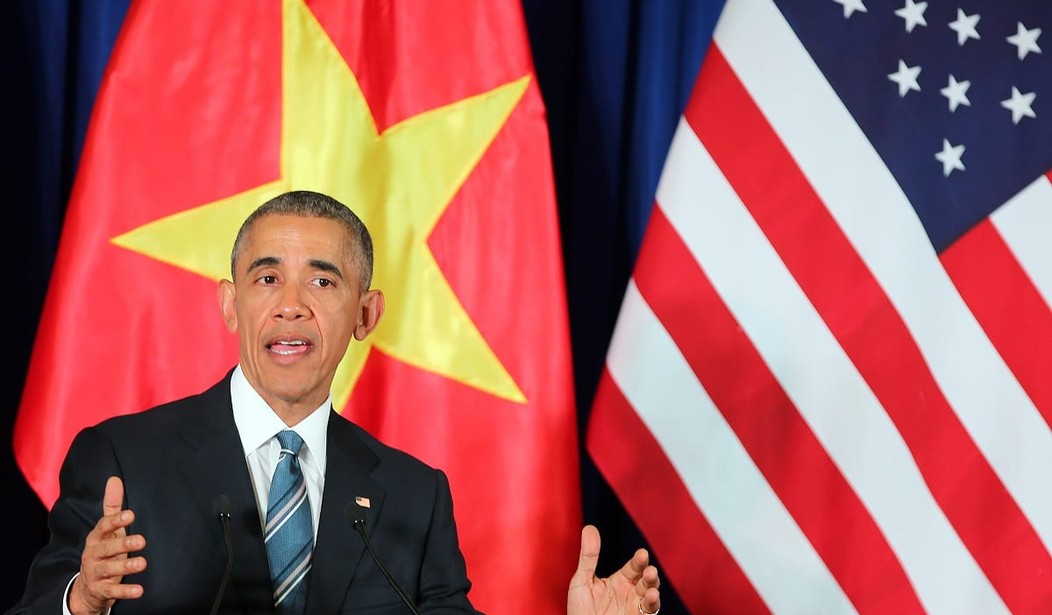
Via the AP:
U.S. President Barack Obama on Monday lifted a half-century-old ban on selling arms to Vietnam, looking to bolster a government seen as a crucial, though flawed partner in a region that he has tried to place at the center of his foreign policy legacy.
Obama announced the full removal of the embargo at a news conference where he vowed to leave behind the troubled history between the former war enemies and embrace a new era with a young, increasingly prosperous nation. Obama steered clear of harsh condemnation of what critics see as Vietnam’s abysmal treatment of dissidents, describing instead modest progress on rights in the one-party state. Activists said his decision to lift the embargo destroyed the best U.S. leverage for pushing Vietnam on abuse.
“At this stage, both sides have established a level of trust and cooperation, including between our militaries, that is reflective of common interests and mutual respect,” Obama said. “This change will ensure that Vietnam has access to the equipment it needs to defend itself and removes a lingering vestige of the Cold War.”
In fairness, it was time for this embargo to end. The only reason to retain it was out of spite over the loss of the war in Vietnam. Times have changed and Vietnam, while thoroughly socialist with a repressive regime, has retreated from its post-war campaign to reduce Cambodia and Laos to puppet regimes. Vietnam has emerged as an inadvertent impediment to Chinese adventurism and expansion in the South China Sea. It has also demonstrated that it will resist Chinese provocations with military force. In 1979, Vietnam fought a short, sharp little war with China brought on partly by Vietnam’s refusal to acquiesce to Chinese territorial claims in the Spratley Islands. The former US Naval Base at Cam Rahn Bay is a deep-water port that is considered to be the finest anchorage in Southeast Asia. Vietnamese proximity to China would also facilitate collecting signals intelligence. Vietnamese air bases would provide a superb platform for drone surveillance of the Spratleys and Chinese activities there.
Unfortunately, there is no evidence we received any strategic concession for removing the arms embargo.
When one looks at the joint statement released by the two governments, the only concrete actions committed to are a) US funding dioxin (Agent Orange) clean up at Bien Hoa airbase and the lifting of the arms embargo. The real reason for the action seems to be Obama clearing the way for the Congress to pass the Trans Pacific Partnership trade agreement:
The two countries resolve to focus on fostering economic cooperation, including trade, investment, science and technology, human resource training, and climate change. The two sides stated that the Trans-Pacific Partnership (TPP) is economically and strategically important, and would promote trade and investment between them, accelerate inclusive economic growth, and create jobs. The two sides reaffirmed their commitments to seek early ratification and full implementation of this high-standard agreement, including commitments on investment, business facilitation and development, intellectual property, textile, services, labor, and environment. The United States pledged to support Vietnam through robust technical assistance and capacity-building programs to effectively implement and meet the high standards of the TPP.
Strategic cooperation, human rights, and economic reform were tossed under the bus.
This is one of those many instances where the Obama administration has let domestic politics and the desire to embellish an Obama legacy drive decisions that ultimately work to the disadvantage of US strategic interests.













Join the conversation as a VIP Member